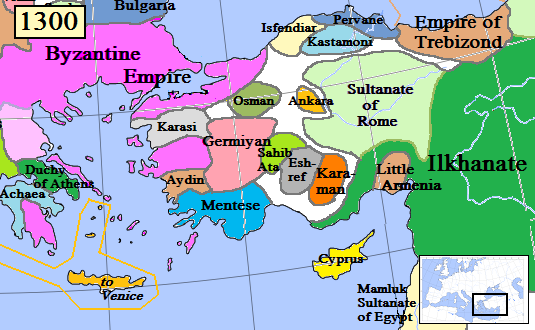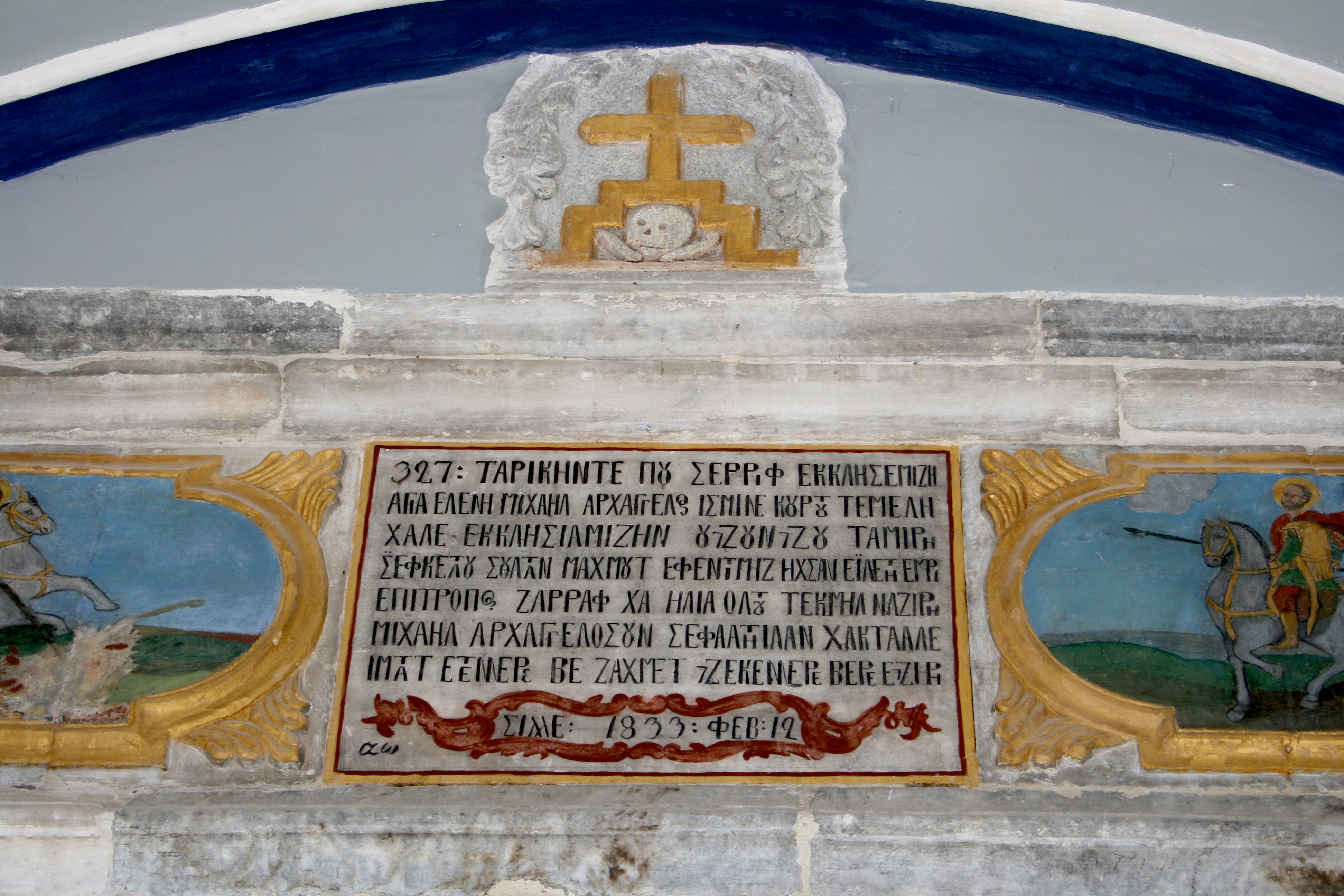|
Karamanlis Family
Karamanlis or Karamanli may refer to: * someone or something from Karaman, Turkey People * The Karamanlis political family of Greece (') ** (1880-1932), Greek teacher ** Konstantinos Karamanlis (1907–1998), former President and Prime Minister of Greece ** Kostas Karamanlis (born 1956), nephew of Konstantinos, former Prime Minister of Greece ** Anastasia Pazaiti-Karamanli (born 1966), better known as Natasa Pazaïti, wife of Kostas ** (born 1932), son of George and brother of Konstantinos, MP 1974-2009 and government minister ** Kostas Karamanlis (born 1974), son of Achilleas, MP since January 2015 * Anna Karamanli, Greek sportswoman and politician * Marietta Karamanli (born 1964), French politician * Karamanli dynasty (Turkish: ''Karamanlı'') of Ottoman Tripolitania ** Ahmed Karamanli (1686–1745), dynasty's founder and pasha of Tripolitania ** Yusuf Karamanli (1766–1838), pasha of Tripolitania Places * Karamania (region), a region of Asia Minor in Turkey * Karamanlı, B ... [...More Info...] [...Related Items...] OR: [Wikipedia] [Google] [Baidu] |
Karaman
Karaman is a city in south central Turkey, located in Central Anatolia, north of the Taurus Mountains, about south of Konya. It is the seat of Karaman Province and Karaman District.İl Belediyesi , Turkey Civil Administration Departments Inventory. Retrieved 1 March 2023. Its population is 175,390 (2022). The town lies at an average elevation of . The Karaman Museum is one of the major sights. 
Etymology The town owes its name to[...More Info...] [...Related Items...] OR: [Wikipedia] [Google] [Baidu] |
Karamania (region)
In the 18th and 19th centuries, Karamania (or Caramania) was an exonym used by Europeans for the southern (Mediterranean) coast of Anatolia, then part of the Ottoman Empire (current Turkey). It can also refer to the general south central Anatolian region, whose name is reflected on the modern town of Karaman. It is also the namesake of the larger Karaman Province of Turkey, the historical Karaman Eyalet of the Ottoman Empire, the medieval Turkish Karamanids dynasty and state from the region, and the Karamanlides, a Turkish-speaking Orthodox Christian group originally from the area. Francis Beaufort and the Term Karamania In 1811–12, Francis Beaufort, then the captain of in the British Navy, was tasked with mapping the Mediterranean coast of Anatolia. In 1817, he published a book about his services, titled ''Brief description of the south coast of Asia-Minor and of the remains of antiquity. With plans, views, & collected during a survey of that coast, under the orders of the Lord ... [...More Info...] [...Related Items...] OR: [Wikipedia] [Google] [Baidu] |
Karamanids
The Karamanids ( or ), also known as the Emirate of Karaman and Beylik of Karaman (), was a Turkish people, Turkish Anatolian beyliks, Anatolian beylik (principality) of Salur tribe origin, descended from Oghuz Turks, centered in South-Central Anatolia around the present-day Karaman Province. From the mid 14th century until its fall in 1487, the Karamanid dynasty was one of the most powerful beyliks in Anatolia. states and territories disestablished in the 1480s History The Karamanids traced their ancestry from Hodja Sad al-Din and his son Nure Sofi, Nure Sufi Bey, who emigrated from Arran (Caucasus), Arran (roughly encompassing modern-day Azerbaijan) to Sivas because of The Mongol Invasions, the Mongol invasion in 1230. The Karamanids were members of the Salur tribe of Oghuz Turks. According to others, they were members of the Afshar tribe,Cahen, Claude, ''Pre-Ottoman Turkey: A General Survey of the Material and Spiritual Culture and History c. 1071–1330'', trans. J. Jone ... [...More Info...] [...Related Items...] OR: [Wikipedia] [Google] [Baidu] |
Karamanli Turkish
Karamanli Turkish (; ) is an extinct dialect of the Turkish language spoken by the Karamanlides. Although the official Ottoman Turkish was written in the Arabic script, the Karamanlides used the Greek alphabet to write their form of Turkish. Karamanli Turkish had its own literary tradition and produced numerous published works in print during the 19th century, some of them published by the British and Foreign Bible Society as well as by Evangelinos Misailidis in the Anatoli or Misailidis publishing house. Karamanli writers and speakers were expelled from Turkey as part of the Greek-Turkish population exchange in 1923. Some speakers preserved their language in the diaspora. The written form stopped being used immediately after Turkey adopted the Latin alphabet. A fragment of a manuscript written in Karamanli was also found in the Cairo Geniza. Orthography Media There was a Karamanli Turkish newspaper, ''Anatoli (newspaper), Anatoli'', published from 1850 to 1922, made ... [...More Info...] [...Related Items...] OR: [Wikipedia] [Google] [Baidu] |
Karamanlides
The Karamanlides (; ), also known as Karamanli Greeks: "Turkophone Greeks are called Karamanli Greeks or Karamanlides, and their language and literature is called Karamanli Turkish or Karamanlidika, but the scholarly literature has no equivalent terms for Turkophone Armenians." or simply Karamanlis, are a traditionally Turkish-speaking Greek Orthodox people native to the region of Karaman in Anatolia. Some scholars regard Karamanlides as the Turkish-speaking Greeks from Karaman, though their exact ethnic origin is disputed; they could either be descendants of Byzantine Greeks who were linguistically Turkified, or of Christian Turkic soldiers who settled in the region after the Turkic conquests, or even both. The Karamanlides were forced to leave Anatolia during the 1923 population exchange between Greece and Turkey. Today, a majority of the population live in Greece and have fully integrated into Greek society. Language Writers and speakers of Karamanli Turkish were exp ... [...More Info...] [...Related Items...] OR: [Wikipedia] [Google] [Baidu] |
Qaramanlı, Neftchala (other)
Qaramanlı, Neftchala may refer to: * Aşağı Qaramanlı * Yuxarı Qaramanlı {{geodis ... [...More Info...] [...Related Items...] OR: [Wikipedia] [Google] [Baidu] |
Qaramanlı
Qaramanlı (also, Garamanly and Garamanli) is a village and municipality in the Yevlakh District of Azerbaijan Azerbaijan, officially the Republic of Azerbaijan, is a Boundaries between the continents, transcontinental and landlocked country at the boundary of West Asia and Eastern Europe. It is a part of the South Caucasus region and is bounded by .... It has a population of 2,230. The municipality consists of the villages of Garamanly, Hajymahmudlu, Dəlləklər, Köyük, Nəmirli, and Nurulular. References * Populated places in Yevlakh District {{Yevlakh-geo-stub ... [...More Info...] [...Related Items...] OR: [Wikipedia] [Google] [Baidu] |
Karamanlı, Burdur
Karamanlı is a town in Burdur Province in the Mediterranean region of Turkey Turkey, officially the Republic of Türkiye, is a country mainly located in Anatolia in West Asia, with a relatively small part called East Thrace in Southeast Europe. It borders the Black Sea to the north; Georgia (country), Georgia, Armen .... It is the seat of Karamanlı District.İlçe Belediyesi , Turkey Civil Administration Departments Inventory. Retrieved 30 January 2023. Its population is 6,157 (2021). References External links Municipality's official website [...More Info...] [...Related Items...] OR: [Wikipedia] [Google] [Baidu] |
Yusuf Karamanli
Yusuf (ibn Ali) Karamanli, Caramanli or Qaramanli or al-Qaramanli (most commonly Yusuf Karamanli), (1766–1838) was the longest-reigning Pasha of the Karamanli dynasty of Ottoman Tripolitania (in present-day Libya). He is noted for his role in the Barbary Wars against the United States. Assumption of the throne Born in Tripoli in 1766, Karamanli, a member of the Karamanli dynasty (named after the Karamanids in Turkey), was originally of Turkish origin.. His brother, Hamet Karamanli, was deposed from leadership in 1793 by Ottoman Empire officer Ali Pasha, who proceeded to exile the Karamanli family and claim Ottoman rule over Tripoli. In 1795, Hamet and Yusuf returned to Tripoli, and with the aid of Hammuda Pasha of the neighboring Barbary state of Tunis, recaptured it from Ali Pasha. Yusuf then had his brother exiled to Alexandria, Egypt and claimed the throne for himself. Barbary Wars In 1796, Karamanli drafted and signed the Treaty of Tripoli, which permitted the ... [...More Info...] [...Related Items...] OR: [Wikipedia] [Google] [Baidu] |
Konstantinos Karamanlis
Konstantinos G. Karamanlis (, ; 8 March 1907 – 23 April 1998) was a Greek statesman who was the four-time Prime Minister of Greece and two-term president of the Third Hellenic Republic. A towering figure of Greek politics, his political career spanned portions of seven decades, covering much of the latter half of the 20th century. Born near Serres in Macedonia, Karamanlis practiced law until his election to the Hellenic Parliament in 1936 as a member of the conservative People's Party. Rising through the ranks of Greek politics after World War II, Karamanlis became Minister of Labour in 1947, and in 1951 he was named Minister for Public Works in Alexandros Papagos's Greek Rally administration. He was appointed prime minister by King Paul of Greece after Papagos's death in 1955. During his first term, he applied a program of rapid industrialization, heavy investment on infrastructure and improvement on agricultural production, which led to the post-war Greek economic miracl ... [...More Info...] [...Related Items...] OR: [Wikipedia] [Google] [Baidu] |
Ahmed Karamanli
Ahmed or Ahmed Karamanli or Qaramanli or al-Qaramanli, (most commonly Ahmed Karamanli) (1686–1745) was an Ottoman official of Janissary background.The City in the Islamic world, Volume 1, Salma Khadra Jayyusi, Renata Holod, Attilio Petruccioli, André Raymond, 2008, page 394 He founded the Karamanli dynasty (1711–1835) of Tripolitania or Tripoli (in present-day Libya). He reigned (1711–1745), as the first Karamanli ruler of Tripolitania. In the early 18th century, the Ottoman Empire was losing its grip on its North African holdings, including Tripoli. A period of civil war ensued, with no ruler able to hold office for more than a year. Ahmed Karamanli, a Janissary and popular cavalry officer, murdered the Ottoman governor and seized the throne in the 1711 Karamanli coup. After persuading the Ottomans to recognize him as governor, Ahmed established himself as ruler and made his post hereditary. Though Tripoli continued to pay nominal tribute to the Ottoman padishah, it a ... [...More Info...] [...Related Items...] OR: [Wikipedia] [Google] [Baidu] |
Karamanli Dynasty
The Karamanli dynasty (also spelled Caramanli or Qaramanli) was an autonomous dynasty that ruled Ottoman Tripolitania from 1711 to 1835. Their territory comprised Tripoli and its surroundings in present-day Libya. At its peak, the Karamanli dynasty's influence reached Cyrenaica and Fezzan, covering most of Libya. The founder of the dynasty was Ahmed Karamanli, a descendant of the medieval Karamanids. The most well-known Karamanli ruler was Yusuf ibn Ali Karamanli who reigned from 1795 to 1832, who fought a war with the United States between 1801 and 1805. Ali II was the last of the dynasty. History In the early 18th century, the Ottoman Empire was losing its grip on its North African holdings, including Tripolitania. A period of civil war ensued, with no ruler able to hold office for more than a year. Ahmed Karamanli, a Janissary and popular cavalry officer, murdered the Ottoman governor of Tripolitania and seized the throne in the 1711 Karamanli coup. After persuading th ... [...More Info...] [...Related Items...] OR: [Wikipedia] [Google] [Baidu] |



